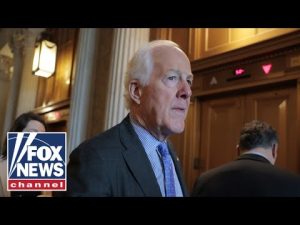In the bustling streets of New York City, a heated mayoral race is lighting up the political scene. The air is thick with opinions, discussions, and perhaps a sprinkle of confusion, as Zoran Mandani, the Democratic Socialists of America candidate, is currently leading the pack. Right on his heels, however, is the former governor, Andrew Cuomo, a name that has become synonymous with both controversy and familiarity. Meanwhile, Curtis Sliwa, the Republican candidate, is trailing behind, and it seems New Yorkers are grappling with their choices in ways that were largely unexpected.
As the campaign unfolds, whispers and allegations are surrounding Mandani, particularly regarding his campaign financing. Claims have surfaced regarding illegal contributions from foreign entities, and the New York City Campaign Finance Board is gearing up for a closer inspection. In a political landscape where every vote counts, this shadow of doubt could be detrimental to Mandani’s campaign. Meanwhile, Cuomo’s comeback may be striking a chord with voters who find themselves torn between the familiar and the unknown. The buzz around town suggests that New Yorkers might just prefer the devil they know over the devil they don’t.
Curiously, many voters reveal in their conversations that while they hold reservations about Cuomo and his legacy, they are still considering him as a viable option. It is almost comical to hear the confessions of those who once shunned the idea of voting for Cuomo now admitting they are leaning in his direction, almost with a sense of resignation. The sentiment boils down to a simple strategic consideration: who has the better chance of defeating Mandani? Voters are wrestling with a selection they never anticipated, as they grapple with voting for a candidate they once actively opposed.
On the opposite side of the fence stands Curtis Sliwa. Despite his enthusiasm and connections to community service, many voters seem resigned to the belief that he’s not the candidate to beat in this contentious race. It’s a classic case of mathematics taking precedence over loyalty; the numbers simply do not seem in Sliwa’s favor. In a race as tight as this, it appears that voters are throwing their hats behind Cuomo while holding their noses, convinced that he stands a far better chance of winning and keeping their city from turning too far leftward.
As the debate amongst citizens swirls, questions linger about Mandani’s motives and narrative. His recent appeal to voters, sharing a poignant story about his aunt who stopped taking the subway post-September 11th due to safety concerns, may have struck a sympathetic chord with some, while others find it more of a political tactic than genuine concern. Skepticism abounds as voters wonder if Mandani truly represents the interests of everyday New Yorkers or if his complicated background raises too many flags for comfort.
In this political thicket, with crime rates showing a slight downturn and discussions heating up around public safety and community priorities, New Yorkers find themselves at a crossroads. The imminent decision about who will be the next mayor is not just about policies or promises; it’s a question of identity. As the campaign continues to unfold, one thing becomes clear: the stakes have never been higher for the “Big Apple,” and the outcome could potentially redefine its path for years to come. Whether they’ll choose the familiar path of Cuomo, the untested waters of Mandani, or the underdog status of Sliwa remains to be seen, but you can bet that New Yorkers will be keeping a close eye on the matter as it develops.







